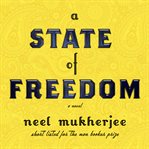Review by New York Times Review
THE PERFECT NANNY, by Leila Slimani. Translated by Sam Taylor. (Penguin, paper, $16.) Two children die at the hands of their nanny in this devastating novel, an unnerving cautionary tale that won France's prestigious Prix Goncourt and analyzes the intimate relationship between mothers and caregivers. KING ZENO, by Nathaniel Rich. (MCD/Farrar, Straus & Giroux, $28.) In Rich's riotous novel about New Orleans a hundred years ago, at the dawn of the Jazz Age, a great American city and a new genre of music take shape as the Spanish flu and a serial ax murderer both run rampant. THE YEARS, by Annie Ernaux. Translated by Alison L. Strayer. (Seven Stories, paper, $19.95.) In this autobiography, the French writer anchors her particular 20th-century memories within the daunting flux of 21st-century consumerism and media domination, turning her experiences into a kind of chorus reflecting on politics and lifestyle changes. DOGS AT THE PERIMETER, by Madeleine Thien. (Norton, paper, $15.95.) Narrated by a neurological researcher whose memories of her childhood in Cambodia under the Khmer Rouge start to leak into her present day, this novel is contrapuntal and elegiac in tone, with a white heat beneath. THE LAST GIRL: My Story of Captivity, and My Fight Against the Islamic State, by Nadia Murad with Jenna Krajeski. (Tim Duggan Books, $27.) Murad, a Yazidi woman, describes the torture and rapes she suffered at the hands of ISIS militants in Iraq before escaping to become a spokeswoman for endangered Yazidis. WINTER, by Ali Smith. (Pantheon, $25.95.) The second in Smith's cycle of seasonal novels depicts a contentious Christmas reunion between two long-estranged sisters. As in "Autumn" (one of the Book Review's 10 Best Books of 2017), a female artist figures prominently, and Smith again takes the nature of consciousness itself as a theme. GREEN, by Sam Graham-Felsen. (Random House, $27.) Set in a majority-minority middle school in 1990s Boston, this debut coming-of-age novel (by the chief blogger for Barack Obama's 2008 presidential campaign) tells the story of a white boy and a black boy who become friends - to a point. A STATE OF FREEDOM, by Neel Mukherjee. (Norton, $25.95.) Mukherjee's novel, a homage of sorts to V. S. Naipaul, presents five interconnected stories set in India and exploring the lives of the unmoored. BARKUS, by Patricia MacLachlan. (Chronicle, $14.99; ages 4 to 7.) A mysteriously smart dog changes everything for a little girl in this witty beginning to a new early chapter book series from MacLachlan, the author of books for children of all ages. The full reviews of these and other recent books are on the web: nytimes.com/books
Copyright (c) The New York Times Company [August 30, 2019]
Review by Booklist Review
Mukherjee's intriguing novel is composed of five loosely connected narratives of varied lives in modern India. The opening vignette offers an unsettling preamble of a father returning to India with his young American son, only to navigate the disenchantment of inhabiting a space that is both home and unfamiliar, a refrain that flows throughout. A subsequent narrative follows a London-based professional on an annual visit to his parents' home in Mumbai. There he meets his family's new cook, the headstrong Renu, and housekeeper Milly and becomes increasingly conflicted over the divide between the haves and have-nots. Milly's story is revisited later. As a child growing up in an impoverished village, she is sent away at age eight to work as a housemaid to help provide for her family. Left behind is her childhood friend Soni, and their tales unfold on disparate paths. Mukherjee's diverse perspectives and narrative treatments offer an honest, uncompromising look at the realities of his characters' circumstances and, most pointedly, their lack of control over them, as well as a compelling exploration of disparity and identity.--Strauss, Leah Copyright 2017 Booklist
From Booklist, Copyright (c) American Library Association. Used with permission.
Review by Publisher's Weekly Review
Freedom, as defined by the characters in Mukherjee's brutally honest and haunting latest novel (after The Lives of Others), is a relative state. Most of them are striving to transcend lives of grinding poverty and degradation in contemporary India, where, though the "untouchable" designation has been abolished, the vicious caste system still victimizes village dwellers and domestic workers. Lakshman has abandoned his family and his dismally poor village to travel with a dancing bear (the bear "dances" when a rope is jerked painfully through his nose), only to realize that he has lost everything and that the bear is his only friend. Renu is a domestic cook in Bombay, working herself to the bone and juggling many jobs in order to pay for her nephew's education. Milly is forced to rely on a man she does not know in order to escape slavelike servitude to her employers: "She had been untethered, set free, when all she wanted was the safety and security of not being alone." Soni, who seeks freedom through activism with the Communist Party, discovers she is a prisoner of doctrinal subjugation. An unnamed father comes home to India from America to show his young son his heritage only to tragically realize that he can't escape the ancient violence that lies simmering under the surface. Seen against a pitiless landscape of primitive villages and hellish urban slums, and the extremes of scorching heat and billowing monsoon rain, this is a compassionate, deeply felt tribute to India's forgotten people who strive to triumph over subjugation. With its mixture of prose styles and narrative voices, Mukherjee's novel is a literary achievement. (Jan.) © Copyright PWxyz, LLC. All rights reserved.
(c) Copyright PWxyz, LLC. All rights reserved
Review by Library Journal Review
The five "narrative parts" of this work, designated only with Roman numerals, comprise five styles: short story; first-person, faux memoir; folktale of sorts; ten-parts-plus-epilog novella; and no-punctuation vignette. The connections require attention, with results well worth the reader's intriguing participation. An Indian American professor's tragedy-ensuing visit with his six-year-old son to iconic Indian landmarks amid hordes of destitute locals confirms "the plush West had made him skinless like a good, sheltered first-world liberal." A London-based writer visits his parents in Mumbai and develops a relationship with the family's cook that challenges employer/employee boundaries. A bear cub is brutally trained to perform by his desperate owner. Two childhood village friends experience diverging adulthoods. A disjointed voice confronts impending death. Man Booker Prize short-listed Mukherjee (for The Lives of Others) gathers a cast of untethered characters to present urgent, even beseeching, testimony on how the titular "state of freedom" is too often more impossible dream than achievable reality. A Q&A with Hanya Yanagihara reveals Mukherjee's intent that Freedom be "an homage, a conversation" with V.S. -Naipaul's In a Free State; familiarity with that work is unnecessary to be awed. VERDICT Libraries with internationally savvy audiences should prepare for substantial demand. [See Prepub Alert, 7/31/17.]-Terry Hong, Smithsonian BookDragon, Washington, DC © Copyright 2017. Library Journals LLC, a wholly owned subsidiary of Media Source, Inc. No redistribution permitted.
(c) Copyright Library Journals LLC, a wholly owned subsidiary of Media Source, Inc. No redistribution permitted.
Review by Kirkus Book Review
Five diverse lives in India are traced and linked, exposing the aching gulfs in experience and opportunity that exist in a complex nation.Particle physicists, Maoist terrorists, punitive employers, servants, and migrs all have roles in Mukherjee's (The Lives of Others, 2014, etc.) third novel, which is composed of interwoven short fictions moving between seething cities and rural life at its most impoverished. Themes of money, work, politics, survival, and women's roles connect the characters. In Bombay, an elderly couple with a new cook welcomes home their liberal son, now living overseas, on his annual visit. His keen interest in food and research for a cookbook lead to awkward efforts to befriend the cook, resulting in a visit to her family's home, a trip seamed with shame, pity, and wonder. Elsewhere, a poor villager, crushed under the burden of trying to provide not only for his own family, but his brother's, toothe brother has gone to find work on construction sites in the citiesis relieved, perhaps, by the discovery of a bear cub. Having trained the bear to "dance"an unbearably cruel processman and animal begin a life together on the road and a kind of parallel existence, begging for food and money, debased and suffering. The fate of the absent brother is glimpsed in the sinister, haunting opening of the book and confirmed in its final section. The London-based Mukherjee surprises once again with the form of his storytelling while confirming anew the depth of his empathy. His characters' life journeys are often painful while his descriptions of their circumstances are unsentimental, vivid, unsparing. Above all there is compassion here, alongside a focus that depicts gross inequities with a grim tenderness.A calm, compelling, unshrinking portrait of humanity in transition; both disturbing and dazzling. Copyright Kirkus Reviews, used with permission.
Copyright (c) Kirkus Reviews, used with permission.



